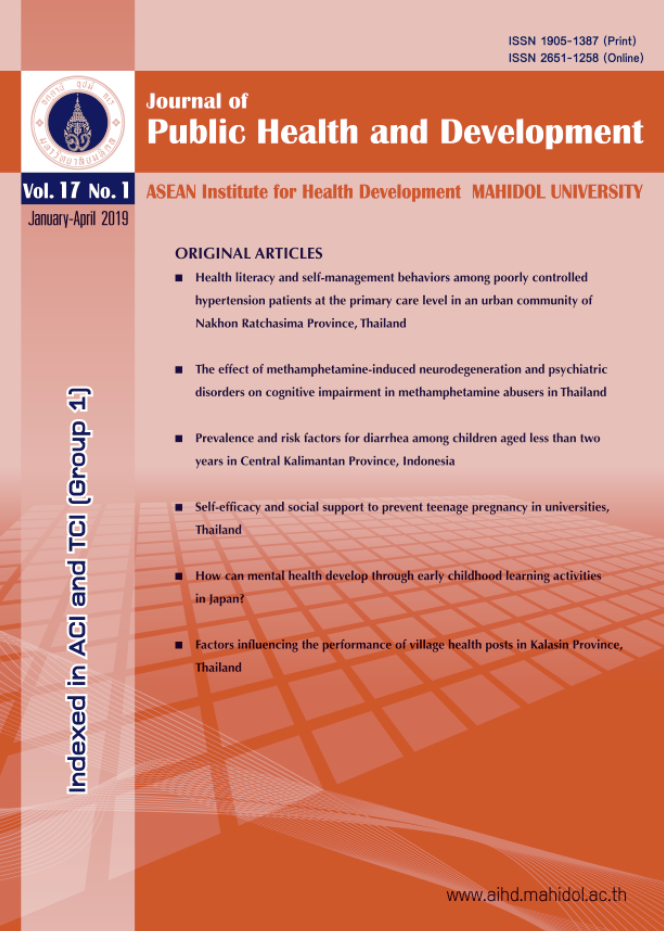The effect of methamphetamine-induced neurodegeneration and psychiatric disorders on cognitive impairment in methamphetamine abusers in Thailand
Main Article Content
Abstract
Methamphetamine (METH) has been found to be one of the leading causes of neurotoxicity in the brain and psychosis. The present study aimed to investigate the interactive effect of METH on capacities for cognition. The higher cognitive functions were determined in METH users with (n = 16) and without psychosis (n = 16) and normal-control subjects (n = 16).
The results showed a significant decrease in the scores of Thai Mental State Examination and increase in Brief Psychiatric Rating Scale in METH users with psychotic symptoms compared with control subjects. Completed blood count (CBC) analysis showed a significant decrease in the number of red blood cells, the levels of hemoglobin and mean corpuscular hemoglobin concentration (MCHC) but a significant increase in the number of basophils of METH users without psychotic symptoms compared with control subjects. The levels of low-grade systemic inflammatory biomarker, C-reactive proteins was significantly decreased in METH users with psychotic symptoms compared with control subjects. The higher cognitive functions was investigated using executive function (EF) tests including go/no-go task, one back task, Wisconsin Card Sorting Test and Stroop task. The METH users exhibited poor EF performance compared to controls such as attention, set shifting, working memory and speed of processing.
This finding may emphasize that neurocognitive deficits associated with METH abuse may result from some neurodegenerative changes occurred in the brains.


